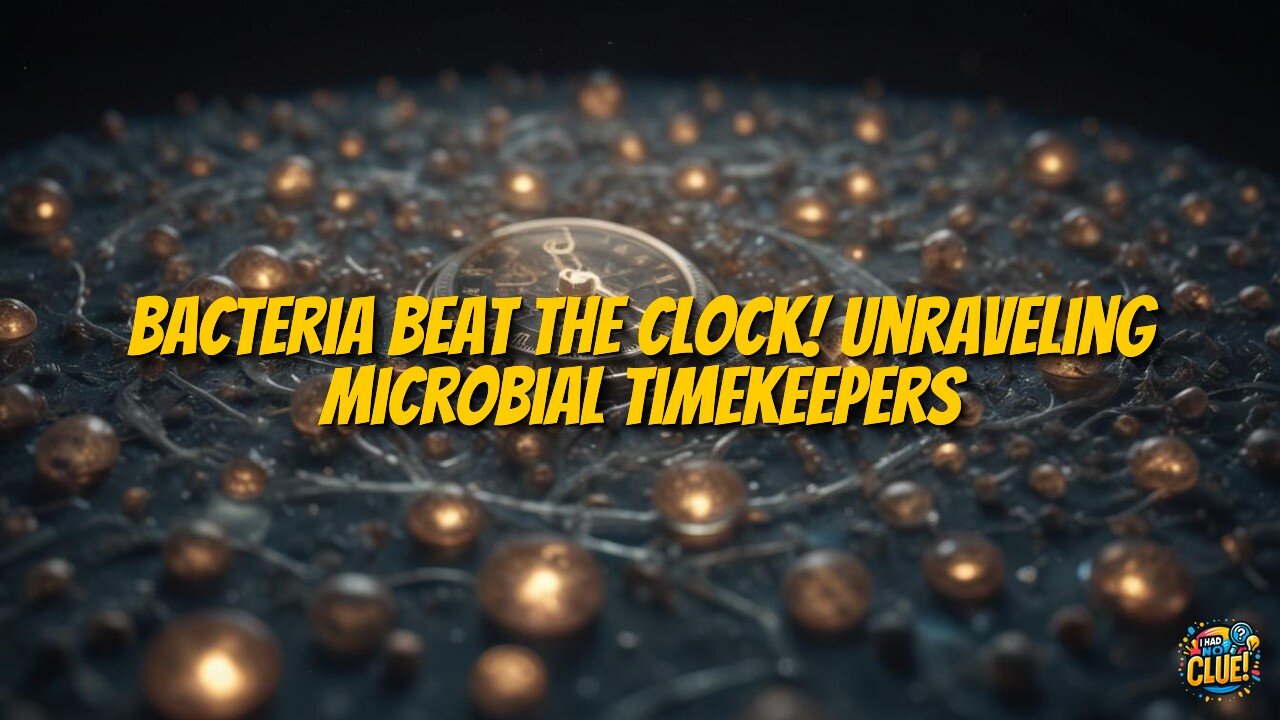Premium Only Content

Bacterial Timekeepers: The Microbial Chronobiology Revolution
Scientists have discovered that bacteria possess sophisticated circadian rhythm mechanisms, overturning decades of belief that such timekeeping was exclusive to complex organisms. This paradigm shift began in 1986 with the detection of circadian rhythms in cyanobacteria, but gained significant acceptance in 2005 when researchers reconstituted a bacterial clock using just three proteins (KaiA, KaiB, and KaiC). Further breakthroughs came in 2019-2021 with the discovery of circadian systems in non-photosynthetic bacteria and soil bacteria. These findings suggest timekeeping mechanisms evolved over 3 billion years ago, potentially making them as fundamental as DNA replication. The implications extend beyond theoretical interest—bacterial chronobiology has applications in environmental monitoring, understanding host-microbiome interactions, agricultural improvements, and novel antibiotic development. This discovery also raises philosophical questions about biological awareness and suggests that anticipatory behavior may represent a primordial form of consciousness that emerged early in life's history.
-
 1:44:57
1:44:57
Steven Crowder
4 hours ago🔴 FAFO: Jimmy Kimmel's gets Chopped & The Left is Freaking Out
446K292 -
 1:01:44
1:01:44
VINCE
4 hours agoThe "Finding Out" Phase Has Officially Begun | Episode 128 - 09/18/25
267K258 -
 LIVE
LIVE
The Shannon Joy Show
3 hours ago🔥🔥Jimmy Kimmel Canned For Charlie Kirk WrongSpeak - MAGA Cheers🔥🔥
293 watching -
 LIVE
LIVE
The Mel K Show
1 hour agoMORNINGS WITH MEL K The People Must Stand Firmly for the Constitution & Bill of Rights NOW 9-18-25
861 watching -
 29:39
29:39
Rethinking the Dollar
2 hours agoIntel & Nvidia Deal = Market Rigged? (You're Being Played)| Morning Check-In: Let's Talk...
12.2K -
 1:00:41
1:00:41
Trumpet Daily
1 hour ago $1.25 earnedTrumpet Daily LIVE | Sept. 18, 2025
26.2K2 -
 57:53
57:53
Grant Stinchfield
2 hours agoExposed: Schiff’s Dangerous Game with Classified Intel... Charges on the Horizon
19.4K3 -
 LIVE
LIVE
LFA TV
15 hours agoKIMMEL GONE | ANTIFA LABELED TERRORISTS! - THURSDAY 9/18/25
3,568 watching -
 1:41:51
1:41:51
Dear America
5 hours agoJimmy Kimmel’s Show Gets CANCELLED Because Of His Comments On Charlie!! + Kash EXPOSES CIA!!
184K73 -
 2:14:29
2:14:29
Benny Johnson
3 hours agoHow We Got Jimmy Kimmel Ripped Off-Air, Why The Right Must Fight | Trump Press Conference LIVE Now
71K50